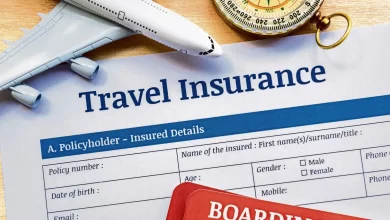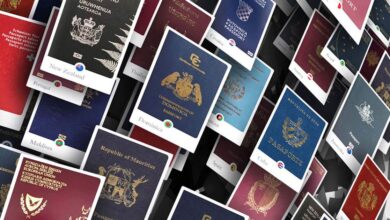
Common Reasons for UK Visa Refusals and What to Do Next
For many people who want to visit the United Kingdom, obtaining a visa is frequently an important and occasionally difficult procedure. Refusals for UK visas can be frustrating and cause anxiety and dissatisfaction. Anyone navigating the UK visa application process has to be aware of the typical causes of these rejections and know what to do next.
Travelers, workers, students, and families find the United Kingdom to be an appealing destination due to its rich history, varied culture, and economic prospects. Nonetheless, acquiring a UK visa necessitates rigorous compliance with immigration regulations and procedures established by the Home Office. Even if an application meets all the standards, it could still be rejected for a variety of reasons.
Not Enough Documentation to Support
One of the main reasons why visa applications are denied is incomplete or missing documents, which poses a big obstacle to the application process. To verify the applicant’s eligibility and purpose for visiting the United Kingdom, the visa application necessitates the painstaking assembly of an extensive collection of supporting documentation.
It is required of applicants to provide a wide variety of documentation to back up their visa application. These consist of, but are not restricted to, bank statements, sponsorship letters, or other documentation attesting to the availability of sufficient cash for the expected stay and related costs. To guarantee the visa officer that the applicant will have a place to stay during the visit, it is essential to provide comprehensive accommodation arrangements. This can be done through hotel reservations, a sponsor’s accommodation confirmation, or a letter of invitation from the host.
Insufficient Funds
An essential factor in a UK visa application is the applicant’s capacity to provide proof of sufficient funds to cover their stay. One of the primary reasons a visa is denied is when the applicant cannot demonstrate that they have enough money to pay for their projected stay in the UK, including travel, lodging, and daily expenditures.
The ability of an applicant to support themselves while visiting and maintain their financial stability is of utmost importance to the Home Office. This assessment is essential to determine whether the applicant would not turn to public finances or employment, both of which are normally forbidden under the majority of tourist visa categories.
Giving specific proof of easily obtainable finances for the trip is necessary to evaluate financial capability. This includes, if available, sponsorship letters that specifically outline the financial commitment from a sponsor as well as bank statements and savings accounts. Such records should unequivocally state that there are sufficient funds available to cover costs, exhibiting a reliable and sufficient financial history.
Absence of Sincere Intent
Presuming a genuine reason for the proposed visit is one of the most important requirements for a successful UK visa application, without a doubt. A genuine aim is demonstrated not only by clearly stating the purpose of the travel but also by making sure that the purpose makes sense in light of the applicant’s background and current situation.
Applicants must provide convincing and reliable justifications for their trip to the UK. Whether it is for travel, business, education, or family affairs, it is essential to clearly and legitimately state the reason. This part of the application is examined closely by the Home Office to see if the applicant’s claimed purpose fits with their background, travel history, and profile.
Any ambiguity, inconsistency, or disparity in the information submitted can raise questions about the applicant’s genuineness. Therefore, it’s imperative to offer a logical and convincing justification that supports the visit’s goal. This means providing accurate information about the schedule, activities, length of stay, and any relationships or connections that complement the reason for the visit.
Prior Experience with Immigration or Travel
Refusal may occur for applicants with a history of immigration infractions, overstaying a prior visa, or inconsistent travel records. To ascertain if an applicant complies with visa regulations, the Home Office carefully reviews their prior immigration records.
Untrustworthy Sponsorship
Any questions regarding the legitimacy or dependability of the sponsor may result in the denial of certain visa categories that need sponsorship from a UK-based organization or individual. This includes sponsors who don’t have the necessary funds or who give inaccurate or erroneous information.
Ineffective Travel Schedules
Visa officials may refuse applications if there is a lack of clarity or credibility in the proposed travel plans, such as ambiguous itineraries or inadequate explanations for the length and purpose of the stay.
How to Proceed Following a Refusal of a Visa
Examine the letter of rejection. With caution
Applicants should carefully consider the refusal letter supplied by the Home Office upon getting a refusal for a UK visa. Determining the best course of action requires an understanding of the exact reasons behind the refusal.
File an Appeal or Submit Another Application
Applicants may be able to appeal the decision or reapply for the visa, depending on the specifics of the refusal. Reapplying entails addressing the reasons highlighted in the refusal letter, whereas an appeal requires contesting the decision on legal grounds.
Consult a Professional
Consulting with immigration specialists or UK immigration law professionals might yield priceless insights. They can evaluate the grounds for rejection, offer guidance on the best line of action, and support the application for a visa.
Resolve any shortcomings in the application
Applicants should fix all of the shortcomings listed in the rejection letter when reapplying. This could be supplying further supporting materials, offering explanations, or fixing any mistakes in the initial application.
Think About Hiring a Proficient Attorney for Appeals
Having a legal representative handle the appeal process can greatly increase the likelihood of a favorable conclusion in complex cases or legal disputes. Attorneys are qualified to handle the intricacies of the appeals procedure and make a compelling argument for the petitioner.



